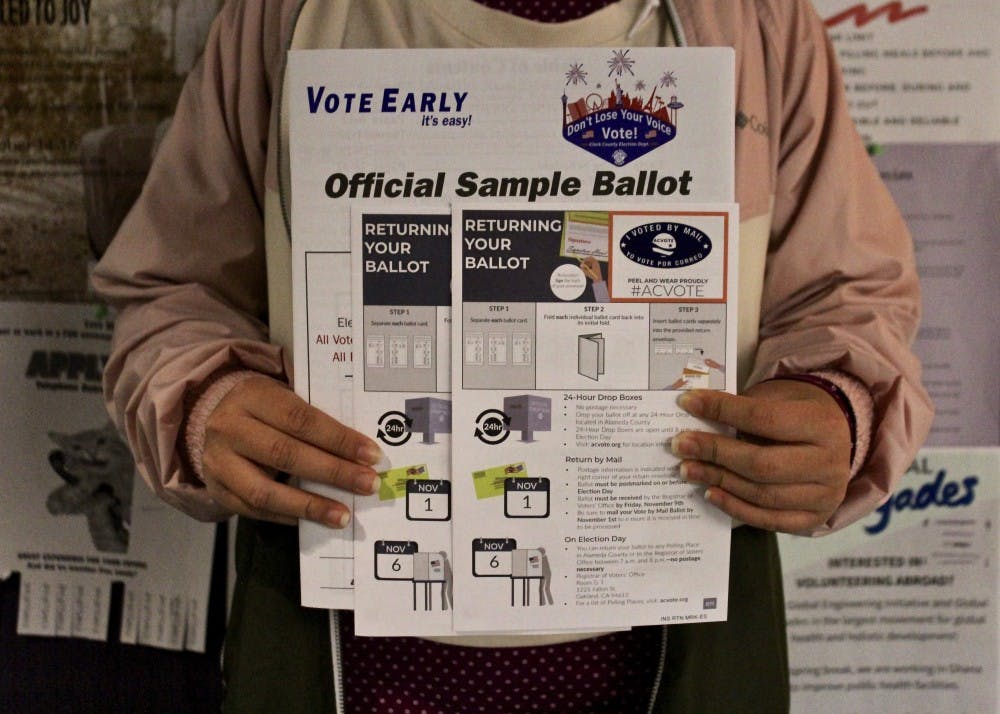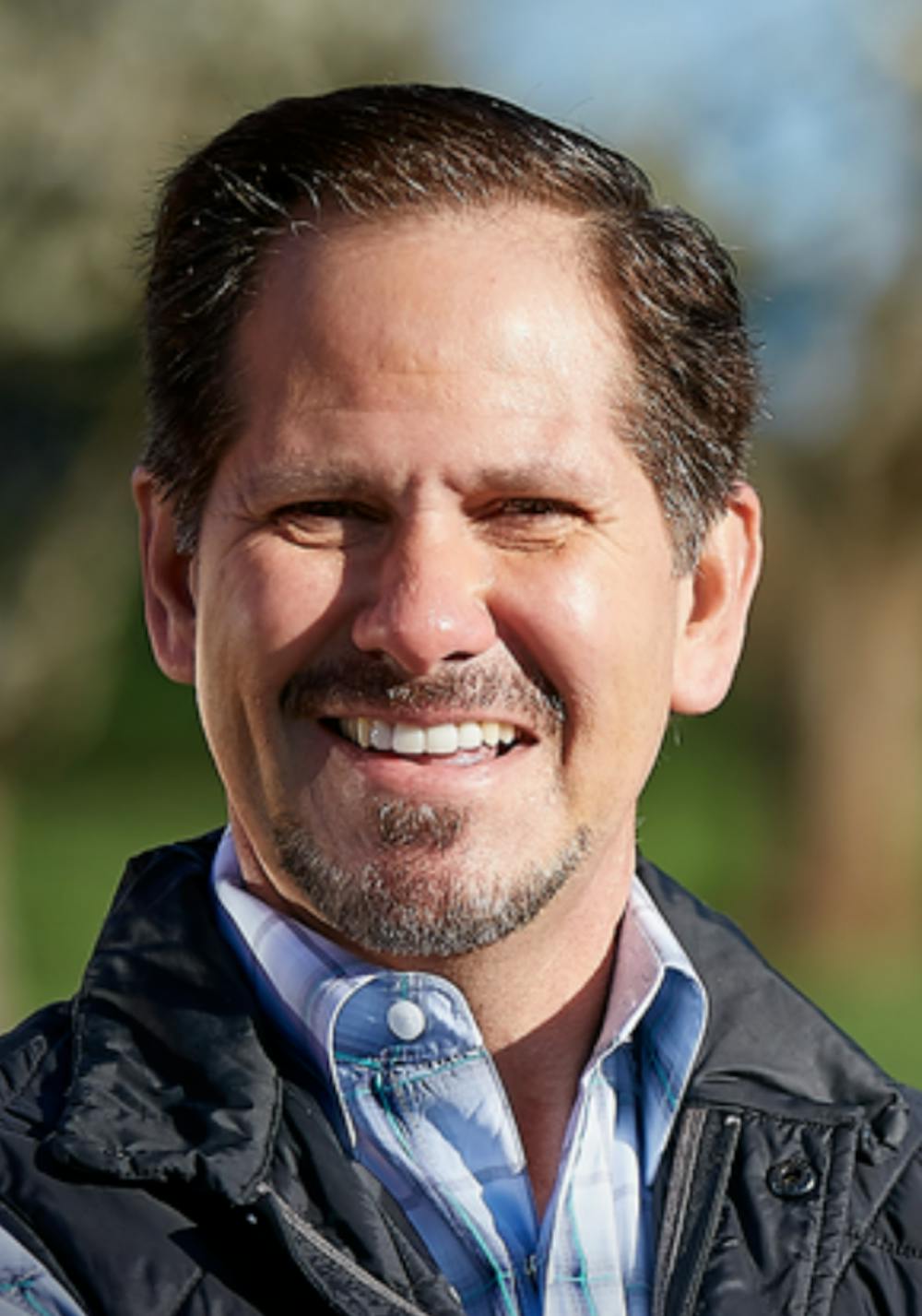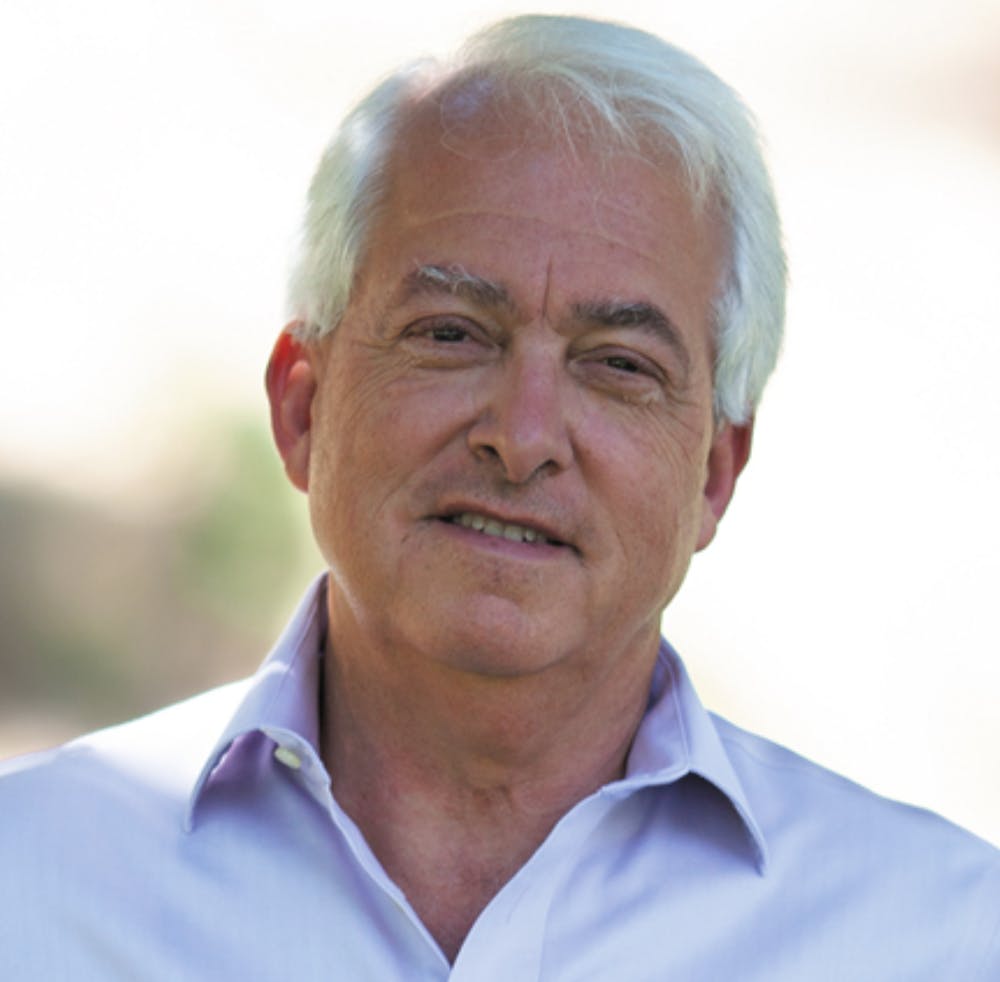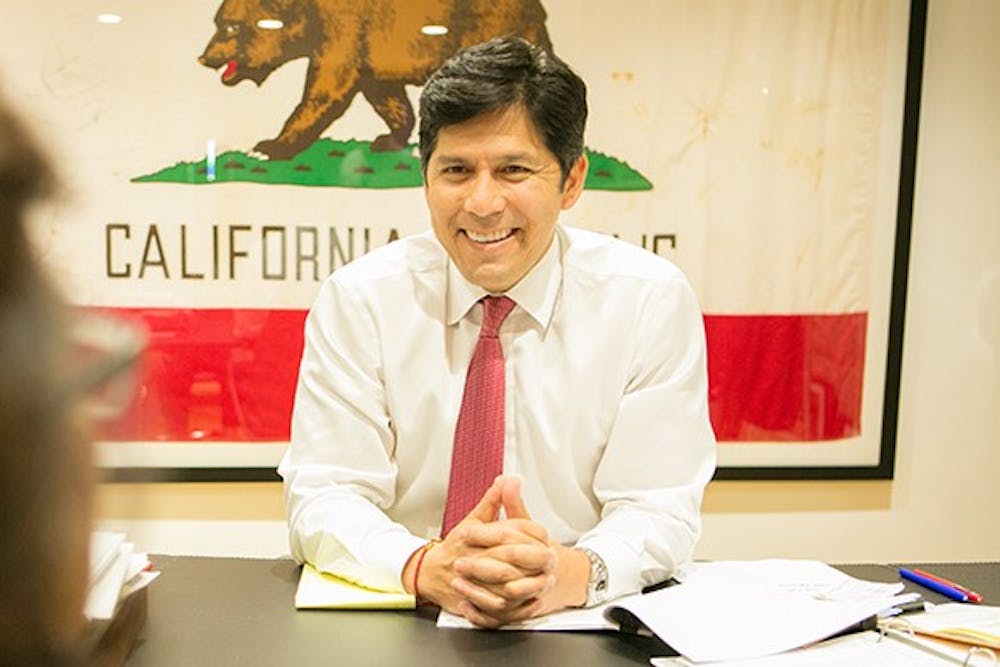If you’ve been paying any attention to the news lately, you know it is midterm season. No, not those pesky midterm exams - midterm elections. Midterm elections are on Tuesday, Nov. 6 and the voting process is already underway, with voter turnout predicted to make history.
The right to vote is the foundation of democracy. This right has been the source of struggle throughout the history of the United States. Women were granted the right less than 100 years ago, and African-Americans continue to face voter discrimination today despite the Voting Rights Act of 1965.
Others argue that voting is one of the best ways to have a voice in what issues matter to you. These proponents point out that the U.S. is facing many challenges, from climate change to global conflict to inequality, and voting is a way to say who you want to represent you in tackling these challenges.
This year, all 435 seats in the U.S. House of Representatives, and 35 (of the 100) seats in the U.S. Senate are up for re-election. Currently, both the House and Senate are controlled by the Republican party, meaning the Republican members make up the majority, but midterm elections could determine what party controls the House or Senate in the future.
Now that you have registered to vote in the midterms, however, you may be confused about what or whom to vote for. Advertisements can be deceiving, campaign information can be confusing and sometimes it is tricky to know who to turn to for unbiased help. And while there is so much pressure out there to cast your ballot, you may be worried about casting your ballot wrong.
For the upcoming 2018 Midterm Elections, The Beacon has compiled a list of statewide ballot measures and major candidates running for office in Oregon, Washington and California, states home to the majority of UP’s student body. We have also included a few measures and candidate races for UP’s hometown of Portland. We are providing non-partisan evaluations of all the measures by sharing what the supporters and opponents argue.
We have gathered this information from Ballotpedia, a neutral online encyclopedia of American politics and elections, and the League of Women Voters, a nonpartisan organization committed to defending democracy.
So, grab your ballot, get comfy and scroll on down to your state to learn how you should cast your vote.

Oregon
Oregon’s voting system is entirely vote-by-mail. If you are voting in Oregon, you may have already received your ballot in the mail. Completed ballots must be received at the elections office by 8pm on Nov. 6. Or, voters can deliver their ballots to an official drop site by 8pm on Nov. 6.
The Moreau Center for Service and Leadership will also be facilitating a collection of completed ballots starting Monday, Oct. 29. There will be a box in the Moreau Center where you can drop off your ballot until 4 p.m. on Election Day.
Ballot Measures
Measure 102: Amends the Oregon constitution to allow non-governmental affordable housing projects to be funded by local bonds. Does not immediately raise taxes; voters will still have to pass proposed bonds.
- Supporters Say: More affordable housing could be constructed or renovated because it will be easier for private developers to team up with local governments. The measure does not cost taxpayers, but makes it possible for local governments to eventually ask voters for money.
- Opponents Say: There is no organized opposition. A yes vote could ultimately lead to higher taxes to pay for affordable housing bonds. Instead, the state could use money for other projects like parks or roads.
Measure 103: Amends the Oregon constitution to prohibit taxes or fees on the sale and distribution of groceries. (There is currently no grocery tax or proposed grocery tax.)
- Supporters Say: Taxes on groceries would disproportionately affect people who are least able to afford it. Taxing grocery sales would raise food prices, punish small businesses and farms and hurt families struggling to put food on their tables. Blocking future taxes would help encourage new grocery stores to open where none now exist.
- Opponents Say: The measure applies to the whole food supply chain, from producers to retailers, so it is inappropriately broad and would have unintended consequences. The measure is also misleading and funded by the corporate grocery industry. A constitutional amendment is too blunt and permanent. This measure could create a permanent loophole for specific special interests.
Measure 104: Amends the Oregon constitution to expand the requirement of three-fifths majority in the legislature to approve bills raising revenue.
- Supporters Say: The Oregon Legislature is too partisan and tax reliant to reduce taxes or fees. It should not be easy to raise fees, so a super majority should be required.
- Opponents Say: Requiring legislature to vote on every fee would create gridlock in Oregon’s legislature.This measure would make it harder to close tax loopholes lobbied for and used by special interests, jeopardizing funding for certain social services.
Measure 105: Repeals the sanctuary state law limiting the use of state/local law enforcement resources to enforce federal immigration laws. Under this current law, local and state police are not allowed to arrest a person if their only crime is being an undocumented immigrant.
- Supporters Say: People should not break laws to come to this country. Undocumented immigrants often accept inadequate wages, and in doing so, this undermines the employment of legal workers. Oregon police should cooperate with ICE in arresting all undocumented immigrants.
- Opponents Say: A yes vote would do away with the sanctuary state law and would lead to more widespread racial profiling and traumatic separation of families. Immigrants whose only crime is being undocumented should not live in fear of local and state police. This would also discourage documented immigrants from reporting crimes or cooperating with local police, increasing overall crime and hurting victims, including victims of domestic violence. Even under the current law, police are able to get involved if undocumented immigrants commit serious crimes. Undocumented immigrants work and pay taxes. If passed, labor force would be reduced, especially in construction and agriculture.
Measure 106: Amends the Oregon constitution to prohibit public funds from being spent on abortions, directly or indirectly (health insurance plans that cover abortion), with few exceptions; also reduces access to abortion for low-income women and publicly employed women.
- Supporters Say: Taxpayers should not have to pay for abortions if they violate their personal or religious beliefs. Many women are emotionally scarred from past abortions.
- Opponents Say: A yes vote would restrict access to abortion. Abortion coverage would be constitutionally taken away from state employees, including firefighters, police, nurses and teachers, and other government workers because their insurance would no longer cover abortion. Restrictions would disproportionately affect low-income women on the Oregon Health Plan.
Portland Measures
Measure 26-199: Metro Affordable Housing Bonds; Authorizes $652.8 million in bonds to fund affordable housing in the Portland metro area.
- Supporters Say: This measure will create safe, permanently affordable housing for thousands of people across Multnomah, Washington and Clackamas counties. Affordable housing in the Portland metro area needs to be addressed. This measure is backed by a coalition of over 500 businesses, faith leaders, nonprofit groups, communities of color and elected leaders. The average homeowner will only pay about $5 per month.
- Opponents Say: The cost for housing needs to be lowered for everyone, not just a select group of people most in need. The answer to solving the housing crisis in Portland cannot be achieved by asking people who are affected by the crisis for more money. There are other solutions for addressing the housing crisis.
Measure 26-200: Portland Fair Elections Charter Amendment; Amends the city charter to limit campaign contributions and spending for elected offices and require certain funding disclosures.
- Supporters Say: Big money weakens our democratic institutions, undermine confidence in government, and excludes many citizens from seeking public office. Portland needs strong campaign finance laws to protect and improve the integrity of local elections. Oregon is one of only 5 states that has no limits on political campaign contributions.
- Opponents Say: Historically, judges have interpreted free speech protections to prohibit limits on campaign giving or spending.
Measure 26-201: Clean Energy Initiative; Requires retailers with a total annual revenue of over $1 billion and a Portland annual revenue of over $500,000 to pay a 1 percent surcharge on gross revenue from retail sales to fund clean energy projects and job training.
- Supporters Say: Climate change needs to be addressed now. This initiative would increase solar power for homes, schools and businesses and also provide job training for low-income workers to transition to good paying jobs. The initiative is committed to communities most impacted by climate change, like low-income people and people of color.The initiative is endorsed by Sierra Club, Environmental Justice Oregon, NAACP, Asian Pacific Network of Oregon, Coalition of Communities of Color, etc.
- Opponents Say: This measure is poorly structured and unspecific about what companies will be affected. The tax will unfairly affect low-income Portlanders because companies may have to change pricing of their products or even try to pass a tax on consumers.
Major Candidate Races
Governor of Oregon

Kate Brown, Democratic candidate for Oregon governor. Photo: Kate Brown campaign
-
Kate Brown: Democrat; Oregon Governor
- Brown has held public office as a state representative for six years, a state senator for 12 years, the secretary of state for six years and was elected governor of Oregon in 2015.
- Endorsements Include: Oregon Education Association, Human Rights Campaign, Planned Parenthood Advocates of Oregon, Oregon Nurses Association, Oregon League of Conservation Voters, Everytown for Gun Safety, Building and Construction Trades Council, National Organization for Women (Oregon), American Federation of Teachers, American Postal Workers Union, Basic Rights Oregon Equality PAC, Oregon Coalition of Police and Sheriffs.
-
Knute Buehler: Republican; Oregon State Representative and Surgeon
- Originally an orthopedic surgeon, Buehler has held office in the Oregon House of Representatives since 2015, representing Bend, OR (District 54).
- Endorsements Include: National Federation of Independent Business, Oregonians for Immigration Reform, Representative Bill Post, Oregon Realtors Political Action Committee, The Oregonian, Lars Larson (talk show radio host).

Knute Buehler, Republican candidate for Oregon governor. Photo: Knute Buehler campaign
Chris Henry: Progressive Party; Truck Driver
- Henry has been a truck driver for 15 years, and works on other various construction jobs.
-
Patrick Starnes: Independent; Cabinetmaker
- Starns has been a freelance cabinetmaker for 30 years, works to restore old houses, and has held previously been elected to the Douglas Education Service District and the McKenzie School Board.
- Nick Chen: Libertarian; Logistics Specialist
- Aaron Auer: Constitution Party; “Circuit Rider and Minister of the Gospel”
U.S. House of Representatives, District 3 (Portland area, including North Portland)
-
Earl Blumenauer: Democrat, Incumbent
- Blumenauer is the current US Congressman. Prior to this position, he was a member of the Oregon State Legislature.
-
Gary Lyndon Dye: Libertarian
- Dye is an engineer and property manager.
-
Tom Harrison: Republican
- Harrison is self employed. He has a background in computer software and hardware design.
-
Mark W Koller: Independent, Green, Progressive Parties
- Koller is a retired executive. He was formerly a business owner and educator and a project manager for Veterans Affairs.
- Michael Marsh: Constitution Party
Portland City Council
-
Jo Ann Hardesty: Democrat
- Hardesty is a former Oregon state representative and activist, serving as the president of the NAACP Portland Branch from 2015-2018.
- Endorsements Include: Basic Rights Oregon, The Oregonian, Asian Pacific American Network of Oregon, Portland Association of Teachers, Bernie PDX, Women’s march on Portland, Sierra Club, Oregon Progressive Party.
-
Loretta Smith: Democrat
- Smith has served two terms on the Multnomah County Commission. Prior to her position on the commision, she worked for US Senator Ron Wyden for over 20 years.
- Endorsements Include: Northwest Oregon Labor Council, US Senator Ron Wyden, Basic Rights Oregon: Equality PAC, Columbia Pacific Building Trades Council, NW Regional Council of Carpenters.
Washington
Washington’s voting system is vote-by-mail. If you are voting in Washington you may have already received your ballot in the mail. For Washingtonians needing their ballot mailed someplace other than their usual mailing address, they can vote with an absentee ballot. Absentee ballots must must be postmarked by Nov. 6th and be received within five days after Election Day.
Ballot Measures
Initiative 940: Requires further trainings for law enforcement officers, including mental health and violence de-escalation training. Also changes the standards for police justifiably use of deadly force.
- Supporters Say: Increased training would improve safety for all communities, especially minority communities and people with mental health problems, who are disproportionately affected by the use of deadly force by law enforcement. Also, Washington currently has the highest legal bar to successfully prosecute an officer for a wrongful death (must prove malice), compared to other states.
- Opponents Say: The initiative’s main goal is to lower the bar for the prosecution of officers who use deadly force. The initiative does not include funding to address the mental illness, drug abuse, and homelessness, which are the main drivers of deadly confrontations. If an officer is afraid of acting in an emergency due to legal reasons, there will be more injuries and deaths of law enforcement officers and members of the public. Opponents to the initiative include Washington Association of Sheriffs and Police Chiefs and Seattle Police Officers Guild.
Initiative 1631: Creates a carbon fee on certain large emitters of greenhouse pollutants. Uses the revenue from this fee to fund environmental programs like reducing pollution and promoting clean energy.
- Supporters Say: One of the best ways for a government to act on climate change is by putting a price on carbon. This initiative is different from other carbon taxing efforts because it focuses on large polluters and invests the revenue in beneficial projects. It also requires funding projects to help support worker transition from fossil fuel jobs that may be lost and speeds up the state’s transition to clean energy. Supporters include 200 labor, business, environmental, tribal and faith groups. Is the first such measure in the U.S., can become a model for other states.
- Opponents Say: This initiative would cause residents to pay more for gas and heating oil. This could disproportionately affect low-income residents. Also, the initiative could lead some large businesses to leave the state. The carbon fee is too small and does not do enough to solve climate-change related problems.
Initiative 1634: Prohibits local governments from increasing or enacting new taxes on certain groceries.
- Supporters Say: Groceries are tax exempt in Washington for a good reason, because basic life needs, like food, should not be taxed. If a city/county added a sales tax to groceries, it could disproportionately affect the extremely poor and low income families, who spend a lot of their overall income on basic necessities, like groceries. Also, if a tax was created or increased for groceries, that may cause customers to shop outside a city’s boundaries, hurting small business owners.
- Opponents Say: The initiative is misleading because it does not actually address the affordability of food. If passed, it would prevent local governments from being able to implement strategies to raise funds to address issues like the access to healthy foods. Municipalities should have the legal authority to impose taxes on sugary drinks to improve public health, for example. The measure is opposed by The American Heart Association, The Childhood Obesity Prevention Collection and the Anti-Hunger and Nutrition Coalition.
Initiative 1639: Changes requirements for purchasing guns, including increased background checks, firearm safety training, waiting periods and age limitations. Also changes requirements for storage of certain guns and enacts other gun-related requirements.
- Supporters Say: This initiative will increase public safety because the provisions will help keep guns out of the hands of known criminals and people with mental illnesses that increase their potential for violence. Studies have shown that increased waiting periods decrease gun homicides, incidents of suicide, etc. Also, raising the age of gun ownership to 21 would be in accordance with Federal law and the law of at least 12 other states. Parkland, Sandy Hook, and Columbine shootings were all perpetrated by killers younger than 21.
- Opponents Say: Background checks are ineffective because illegal gun dealers do not abide by them and the black market will not be affected. Waiting periods unnecessarily force gun buyers to wait for permission to exercise their constitutional right. Waiting periods and gun storage requirements would put people in jeopardy at times of crisis. Americans are able to enlist in the military at age 18, so citizens of that age should be able to be entrusted to operate semi-automatic assault rifles.
Advisory Vote 19: Asks whether the legislature should repeal or maintain a previous senate bill (Senate Bill 6269) that expanded the oil spill response tax to apply to pipelines.
(Advisory Votes are a type of ballot measure in which citizens vote on a non-binding question. The outcome of this question does not result in a new, changed, or rejected law or constitutional amendment. It is a symbolic representation of what the voting population thinks about an issue)
Major Candidate Races
U.S. Senate: Voters will be electing one member to the United States Senate to represent the state of Washington.

Maria Cantwell, Democratic candidate for Washington senator. Photo: Maria Cantwell campaign
-
Maria Cantwell: Democrat, Incumbent
- Cantwell is a three-term incumbent Senator, first elected to the U.S. Senate in 2000.
- Endorsements Include: The Seattle Times, Planned Parenthood Action Fund, League of Conservation Voters.
Susan Hutchinson: Republican
- Hutchinson is the former chair of the Republican Party of Washington. Prior to that, she was a TV news journalist.
- Endorsements Include: Washington Farm Bureau, Hunters Heritage Council, Washington Representative JT Wilcox.

Susan Hutchinson, Republican candidate for Washington senator. Photo: Susan Hutchinson campaign
U.S. House of Representatives, District 3 (District includes Vancouver area and Southcentral Washington)
-
Jaime Herrera Beutler: Republican, Incumbent
- Beutler has been a member of the US House of Representatives since 2011. Prior to that position she was a member of the Washington House of Representatives.
- Endorsements Include: Associated General Contractors of America, National Rifle Association, Washington Farm Bureau, Campaign for Working Families, Winning for Women, Republican Main Street Partnership.
-
Carolyn Long: Democrat
- Long is a political science professor at Washington State University.
- Endorsements Include: Emily’s List, Planned Parenthood Action Fund, National Women’s Political Caucus, Washington State Labor Council, American Federation of Teachers - Washington, Alliance for Gun Responsibility, Sierra Club, Human Rights Campaign, Former President Barack Obama.
California
California’s voting system involves both voting at polling places and voting by mail. For UP students voting in California, they can vote by mail with an absentee ballot. Completed absentee ballots must be postmarked by Election Day, Nov. 6, and received within three days of Election Day.
Ballot Measures
Proposition 1: Authorizes $4 billion in bonds to fund certain affordable housing programs for low income residents, veterans, farm workers, etc.
- Supporters Say: This proposition provides relief from the housing crisis through various housing assistance programs.
- Opponents Say: This proposition will only help a limited number of people.
Proposition 2: Authorizes $2 billion in bonds to fund the No Place Like Home Act, a housing assistance program for people with mental health illnesses. Also amends the Mental Health Services Act so that it funds the No Place Like Home Act.
- Supporters Say: This proposition alleviates the problem of homelessness complicated by mental illness and this supportive type of housing helps coordinate the care of individuals who need both mental illness treatment and housing stability. This proposition also uses funds that have already been set aside for mental health services.
- Opponents Say: This proposition focuses too much on housing when it should instead focus on much needed mental illness treatment. It also does not address the restrictive zoning laws that make it difficult to build housing.
Proposition 3: Authorizes $8.9 billion in bonds to fund various environmental projects addressing water-related issues, including water supply and quality, fish and wildlife, habitat protection and groundwater sustainability and storage.
- Supporters Say: California’s water supply is facing extreme challenges. This proposition will fund much needed projects to help increase water supply and help disadvantaged communities protect their access to safe drinking water. Watershed restoration will also protect agricultural interests by improving water quality.
- Opponents Say: We need more dams to collect rain and snowmelt from the Sierras to help combat our water shortage, and this proposition does not include funding for new dams. This proposition prioritized protecting wildlife and recreation over protecting farmers and the agriculture industry. Paying for these new bonds could result in increased taxes.
Proposition 4: Authorizes $1.5 billion in bonds to fund construction projects at children’s hospitals to expand and/or improve buildings and purchase new equipment.
- Supporters Say: This proposition would help over two million sick children each year. There have been previous bonds used to add more beds and purchase new technology, but hospitals need funding for other projects like improving buildings and equipment.
- Opponents Say: To pay back this bond, there may be an increase in taxes. Before making changes to healthcare, we should first look at improving the entire healthcare system, for example by lowering costs.
Proposition 5: Amends the California constitution to increase the ability of certain homeowners, who are age 55 or older or are severely disabled, to obtain tax relief by transferring a certain tax base to a replacement property.
- Supporters Say: This proposition provides older adults who are on fixed incomes with better protection. These changes will also make more houses available for younger families.
- Opponents Say: Seniors already receive benefits and protection. Essential local services and schools could be negatively impacted. More local revenue could be lost.
Proposition 6: Repeals the 2017 Road Repair and Accountability Act, which implemented fuel taxes and fees to generate funding for road repair. Also amends the California constitution to require voter approval of any transportation related taxes and fees.
- Supporters Say: Gas taxes and fees are too high and disproportionately impact hardworking families. These taxes and fees are unnecessary because California has a budget surplus. Not all of the money goes towards roads, one third of the tax increase will be diverted to other projects like building parks and training formerly incarcerated felons. Tax increases on fuel should be decided on by the people, not the governor and legislature.
- Opponents Say: Doing away with this law takes away a source of funding for road improvement. California is in vital need of road improvement: 89% of California counties have roads in poor or at-risk conditions and more than 1600 bridges and overpasses are structurally unsafe. Reliable transportation infrastructure is important for Californians to get to work, move goods and services around the state, and support the economy. Requiring voter approval of fuel taxes or vehicle fees would ultimately result in greater difficulty dealing with the state budget.
Proposition 7: Allows California legislature to change Daylight Savings Time Period if it reaches a two-thirds vote and if federal law law authorizes it.
- Supporters Say: Daylight Savings should be changed to year round Daylight Savings Time, and California should have the ability to work toward changing it. With the current Daylight Savings Time period, clocks are changed twice a year, which increases electricity use by 4%, increases the amount of fuel used by cars and costs about $434 million. Also, medical studies have shown that risks of heart attacks and strokes increase during the days following a time change.
- Opponents Say: The U.S. tried a year-round Daylight Savings Time in 1974 because of the energy crisis and citizens disliked waking up in the dark in the morning. There are no conclusive studies that show year-round Daylight Savings Time saves energy or money.
Proposition 8: Requires private dialysis clinics to issue refunds if their revenue exceeds allowable costs by more than 15 percent. Dialysis treatment is a necessary treatment for people with kidney disease and is undergone multiple times a week.
- Supporters Say: This proposition incentivises dialysis clinic companies to lower their costs and improve their patient care quality. This could ultimately lead to an overall decrease in the price of insurance for everyone since insurance companies are charged less for dialysis.
- Opponents Say: This proposition could cause clinics to reduce their operations or close, which would deprive patients of access to healthcare and increase the risk of them experiencing health issues. The proposed limits on what insurance companies pay for dialysis treatment are too random and may not fully cover the costs of running a clinic.
Proposition 10: Repeals law that limits governmental rent control. Expands local governments authority to regulate rents on any type of housing property.
- Supporters Say: This proposition would better protect seniors, families and anyone with low or fixed income, who are hurt by the high cost of rent. Also allows local communities to decide what solutions work better for their rental housing issues.
- Opponents Say: Rent control laws discourage more building and lead landlords to stop renting, which reduces the amount of rental property available. This proposition could lead to the creation of new local bureaucracies with power to regulate rents on all types of residential property.
Proposition 11: Amends the California Labor Code to allow private ambulance providers to require ambulance employees to remain on call during work breaks.
- Supporters Say: There is a longstanding practice within the private ambulance industry of paying medical personnel to be on call during breaks. This proposition establishes the practice into law and mandates personnel to receive additional training to meet emergency standards.
- Opponents Say: This proponent could strip first responders of their right to food and rest breaks, worsening the already difficult work conditions for ambulance workers. This proposition is being funded by the American medical Response (AMR), which is one of California’s largest private ambulance companies.
Proposition 12: Establishes new standards for confinement of certain animals, including banning the sale of eggs and meat from animals in spaces below specific sizes.
- Supporters Say: This proposition would strengthen and clarify California’s decade-old farm animal anti-cruelty law. It prevents animals from being treated inhumanely. It also prevents overcrowding of animals in small spaces, therefore reducing risk of people getting sick from food poisoning and factory farm pollution.
- Opponents Say: The proposed time frame for full compliance (2022) is too narrow and could cause disruptions in the supply chain, increases in costs and shortages of eggs, pork and veal products. This proposition is not a truly cruelty-free alternative to current factory farm practices.
Major Statewide Candidate Races
Governor of California

Gavin Newsom, Democratic candidate for California governor. Photo: Gavin Newsom campaign
-
Gavin Newsom: Democrat
- Newsom is currently serving his second term as Lieutenant Governor of California. Prior to that position, he served as mayor of San Francisco for six years. Before entering politics, Newsom worked in real estate and ran a wine business.
- Endorsements Include: National Union of Healthcare Workers, Sierra Club California, California Teachers Association, Equality California, San Francisco Chronicle, California Nurses Association, United Food and Commercial Workers, Giffords: Courage To Fight Gun Violence, US Senator Kamala D. Harris.
-
John Cox: Republican
- Cox has worked in accounting, real estate, venture capital and law. He has previously sought election to various offices including US Senate, US House and the presidency.
- Endorsements Include: Association of Los Angeles Deputy Sheriffs, former U.S. Secretary of State Condoleezza Rice.

John Cox, Republican candidate for California governor. Photo: John Cox campaign
U.S. Senate
-
Dianne Feinstein: Democrat, Incumbent
- Feinstein has been the US Senator representing California since 1992, winning four re-elections since then.
- Endorsements Include: Former President Barack Obama, Equality California, California National Organization for Women, Everytown for Gun Safety Action Fund, Human Rights Campaign, Planned Parenthood Action Fund, Governor Jerry Brown, US Senator Kamala Harris, Los Angeles Times.
-
Kevin de León: Democrat
- DeLeón has served in the California State Senate since 2010, represented downtown and East Los Angeles. He has been the President pro tempore since 2014.
- Endorsements Include: California Democratic Party, California Labor Federation, Democracy for America, Progressive Democrats of America, Health Care for all - California, Moms Demand Action for Gun Sense, California Environmental Justice Alliance - Action.

Lieutenant Governor
-
Eleni Kounalakis: Democrat
- Kounalakis is the former U.S. Ambassador to Hungary
- Endorsements Include: U.S. Senator Kamala Harris, Equality California, Pro Choice California, Moms Demand Action for Gun Sense, California Federation of Teachers, Emily’s List, Former President Barack Obama.
-
Ed Hernandez: Democrat
- Hernandez is a California state senator.
- Endorsements Include: California Labor Federation, California Latino Legislative Process, Los Angeles Times Editorial Board, Planned Parenthood Affiliates of California, Health Care for all - California, California Federation of Teachers, California Nurses Association
Secretary of State
-
Alex Padilla: Democrat
- Padilla was a California state senator for eight years. In 2015 he became California’s Secretary of State.
- Endorsements Include: Equality California, California Labor Federation, California League of Conservation Voters, Planned Parenthood Affiliates California, Sierra Club, California Teachers Association, US Senator Kamala Harris.
-
Mark P. Meuser: Republican
- Meuser is a constitutional and elections law attorney.
- Endorsements Include: California Republican Party.
Autumn Fluetsch is reporter for The Beacon. She can be reached at fluetsch20@up.edu.









